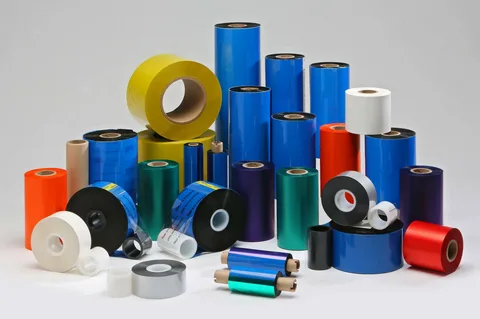The Role of Wholesale Pharmacies in Ensuring Drug Availability Across India

Healthcare is a cornerstone of any society, and access to essential medicines is a vital part of it. In India, a vast and diverse country, ensuring that medicines reach every corner, from bustling cities to remote villages, is a complex task. This is where wholesale pharmacies play a critical role. They act as the link between manufacturers and retailers, ensuring a steady supply of medicines across the country.
What Are Wholesale Pharmacies?
Wholesale pharmacies are businesses that purchase medicines in bulk from manufacturers and distribute them to retailers, hospitals, and other healthcare providers. They don’t sell directly to consumers but are a key part of the pharmaceutical supply chain. Operating a wholesale pharmacy requires specific licenses, including a pharma wholesale license, to comply with regulations and maintain quality standards.
The Importance of Wholesale Pharmacies
-
Bridging the Gap Between Manufacturers and Retailers
Pharmaceutical manufacturers focus on producing medicines, while retailers handle sales to consumers. Wholesale pharmacies connect these two ends, ensuring that medicines are distributed efficiently. -
Ensuring Drug Availability
India’s healthcare needs vary significantly across regions. Wholesale pharmacies ensure that life-saving drugs and other essential medicines are available even in the most remote areas, supported by their compliance with the drug license regulations. -
Maintaining Stock During Emergencies
During health crises like the COVID-19 pandemic, wholesale pharmacies played a crucial role in ensuring that medicines and medical supplies were available when demand surged. -
Reducing Costs Through Bulk Purchasing
By purchasing medicines in bulk, wholesale pharmacies can negotiate better prices from manufacturers. This cost efficiency is passed down the supply chain, making medicines more affordable for consumers.
Key Licenses for Wholesale Pharmacies
To operate legally and effectively, wholesale pharmacies in India must have the following licenses:
-
Pharma Wholesale License
This license is mandatory for businesses involved in the wholesale distribution of medicines. It ensures compliance with the Drugs and Cosmetics Act, 1940, which regulates the pharmaceutical industry. -
Drug License
A general term covering various licenses required for manufacturing, distributing, and selling medicines. Wholesale pharmacies must apply for a drug license to distribute drugs legally. -
Retail Pharmacy License
While wholesale pharmacies operate at a larger scale, they often collaborate with retailers who require a retail pharmacy license to sell medicines directly to consumers. -
Drug Manufacturing License
Manufacturers supplying medicines to wholesale pharmacies must obtain a drug manufacturing license to ensure that the production process adheres to strict quality standards.
How to Apply for a Drug License in India
Applying for a drug license is a critical step for any entity involved in the pharmaceutical sector. The process includes:
-
Deciding the Type of License
Determine whether you need a pharma wholesale license, retail pharmacy license, or drug manufacturing license based on your business operations. -
Meeting Eligibility Requirements
Ensure that the business premises meet the required standards and employ a qualified pharmacist or competent person as specified by law. -
Submitting the Application
Submit the application to the State Drug Control Authority along with required documents, including proof of premises, qualification certificates, and business registration details. -
Inspection and Approval
Authorities inspect the premises to ensure compliance with regulations before granting the license.
How Wholesale Pharmacies Operate
-
Sourcing Medicines
Wholesale pharmacies procure medicines from manufacturers or authorized distributors who hold a valid drug manufacturing license. -
Storage and Logistics
Medicines often require specific storage conditions, such as controlled temperatures. Wholesale pharmacies maintain advanced storage facilities to comply with drug license requirements. -
Distribution Network
Wholesale pharmacies have extensive distribution networks to supply medicines to urban and rural areas. They partner with retailers who hold a retail pharmacy license to ensure medicines reach consumers. -
Regulatory Compliance
Wholesale pharmacies must navigate complex regulations, including maintaining valid pharma wholesale licenses and adhering to storage and distribution standards.
Challenges Faced by Wholesale Pharmacies
-
Supply Chain Disruptions
Factors like transportation strikes, natural disasters, or pandemics can disrupt the supply chain, affecting the availability of medicines. -
Regulatory Hurdles
Obtaining and renewing licenses such as the drug license and pharma wholesale license can be time-consuming and complex. -
Counterfeit Medicines
Ensuring the authenticity of medicines is a major challenge. Wholesale pharmacies must implement strict quality control measures to prevent counterfeit drugs from entering the supply chain. -
Fluctuating Demand
Predicting the demand for specific medicines can be challenging. Overstocking can lead to wastage, while understocking can result in shortages.
Wholesale Pharmacies and Healthcare Access in Rural Areas
India’s rural areas often face challenges in accessing healthcare due to poor infrastructure and limited medical facilities. Wholesale pharmacies play a critical role in bridging this gap by:
-
Collaborating with Local Distributors: Partnering with regional distributors to ensure last-mile delivery of medicines.
-
Supplying to Government Health Programs: Supporting public healthcare initiatives by providing medicines for programs like the National Health Mission.
-
Facilitating Mobile Pharmacies: Enabling mobile pharmacies and healthcare units to operate in remote locations.
The Future of Wholesale Pharmacies in India
-
Adopting Artificial Intelligence (AI)
AI can help wholesale pharmacies optimize inventory management and predict market trends more effectively. -
Expanding Reach Through E-commerce
The growth of online wholesale platforms will make it easier for small retailers in remote areas to access medicines. -
Improving Cold Chain Logistics
With advancements in cold chain logistics, wholesale pharmacies will be better equipped to handle sensitive medicines like vaccines and biologics. -
Streamlining Licensing Processes
Simplifying the process of applying for a drug license and related permits will encourage more businesses to enter the pharmaceutical sector.
Conclusion
Wholesale pharmacies are the backbone of India’s pharmaceutical supply chain. They ensure that essential medicines reach every corner of the country, making healthcare accessible to millions. Despite challenges, their role in maintaining drug availability is undeniable.
By continuing to invest in infrastructure, technology, and partnerships, and by complying with licenses such as the drug license, pharma wholesale license, and retail pharmacy license, wholesale pharmacies can play an even greater role in supporting India’s healthcare system. This ensures that no one is left without access to life-saving medicines, fostering a healthier and more equitable society.





